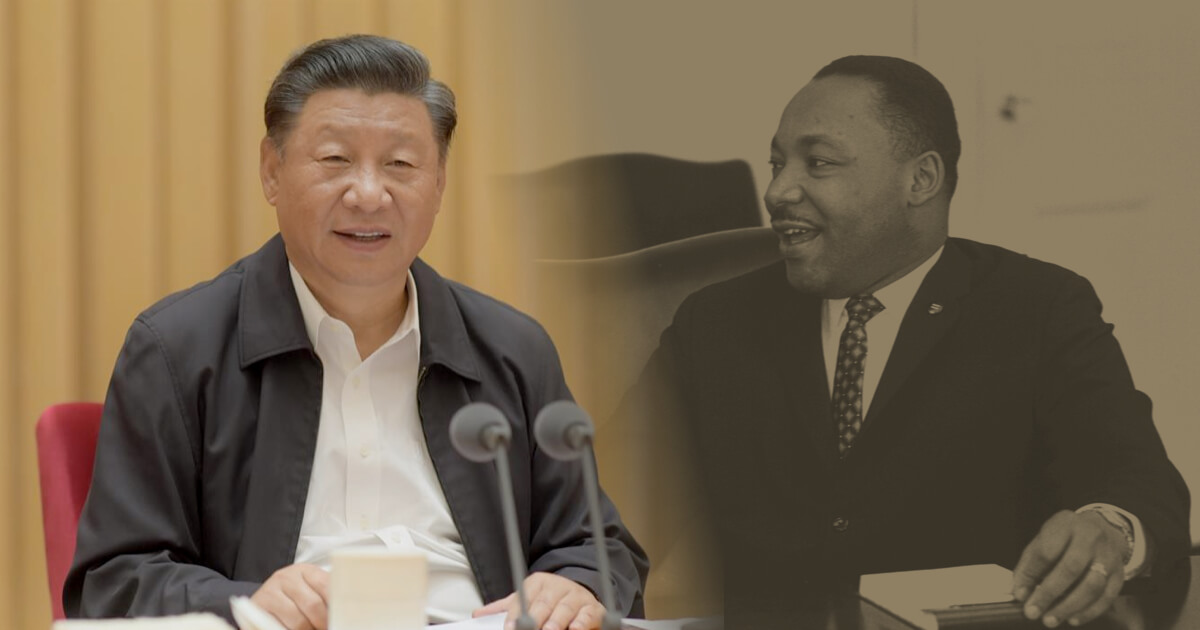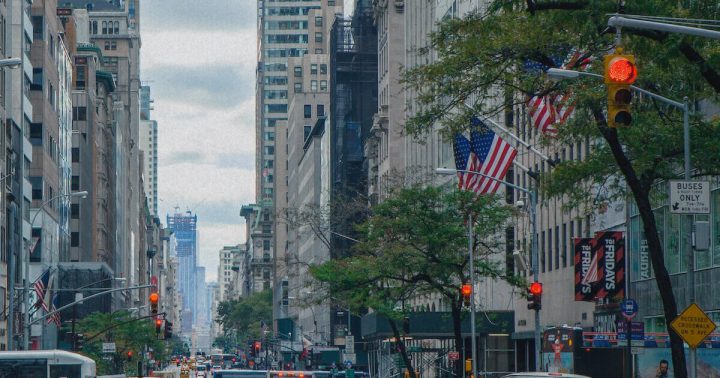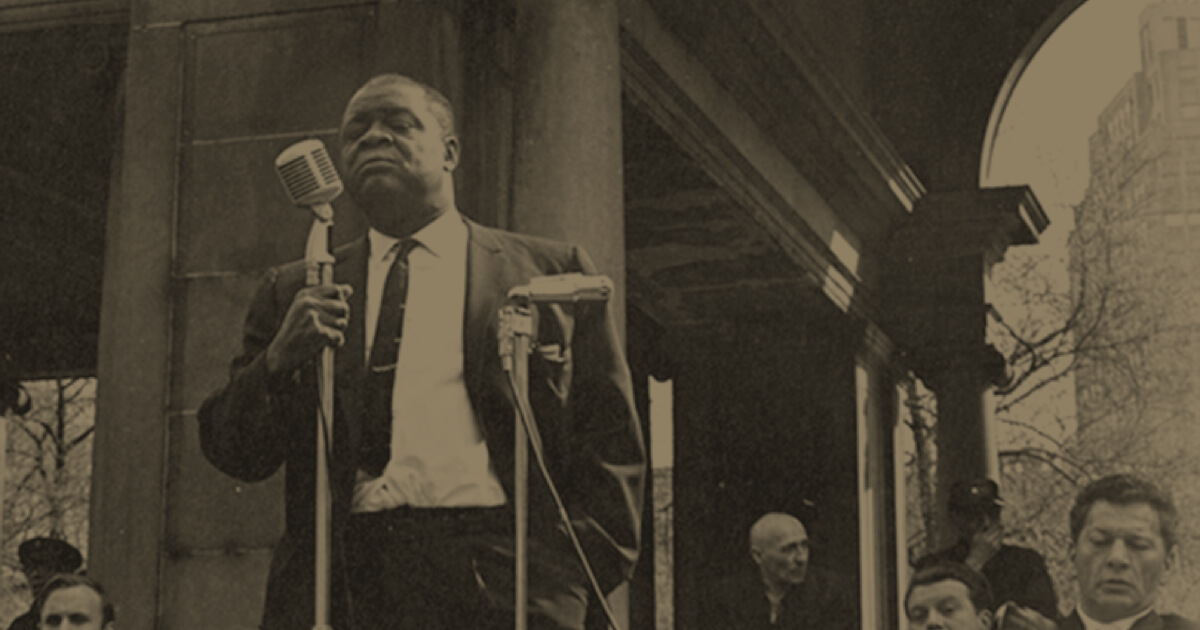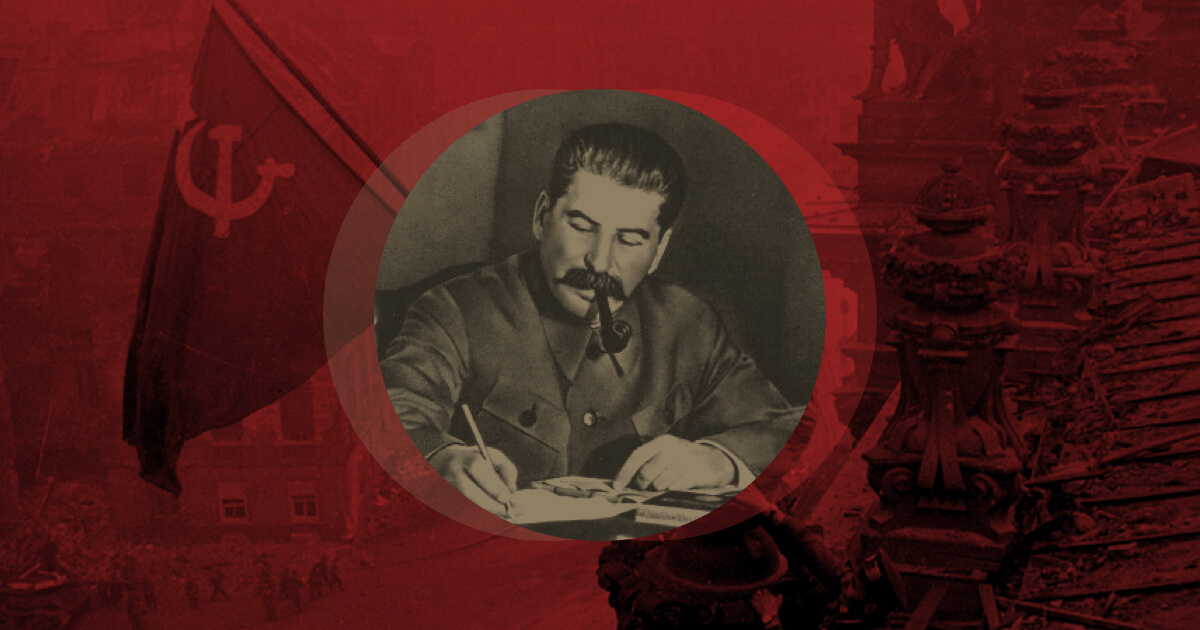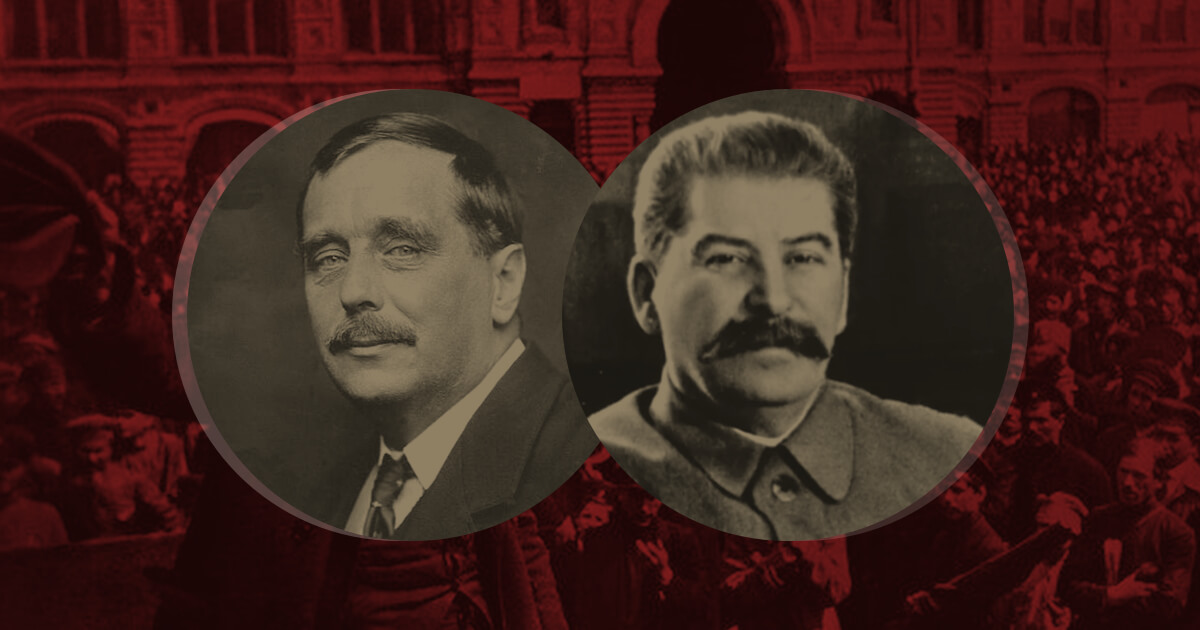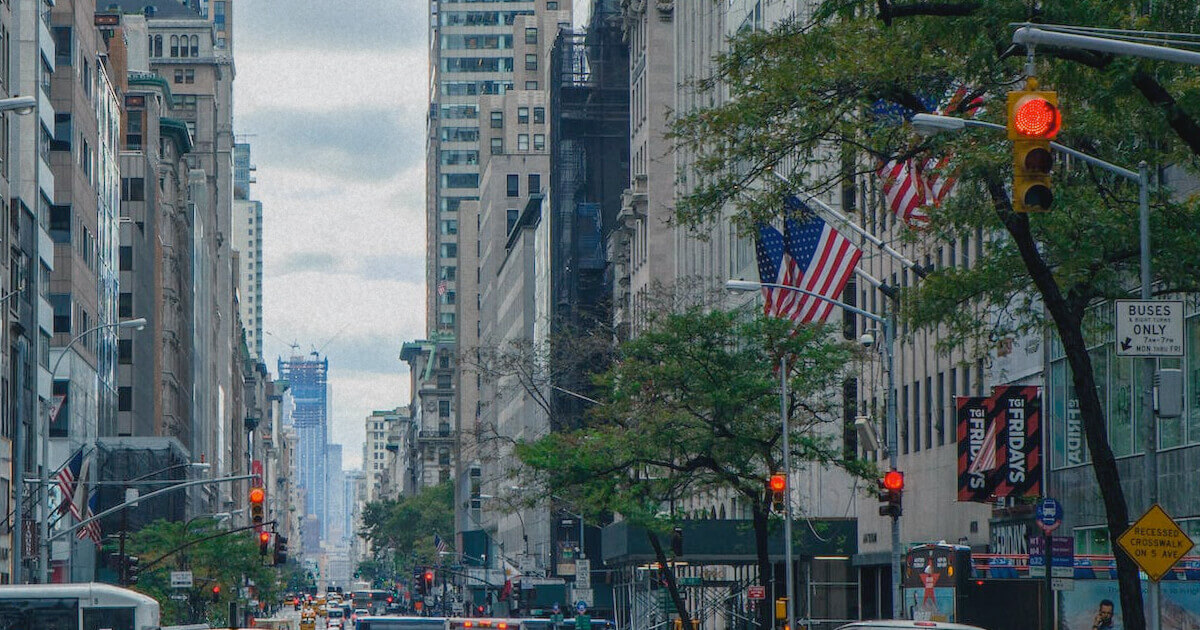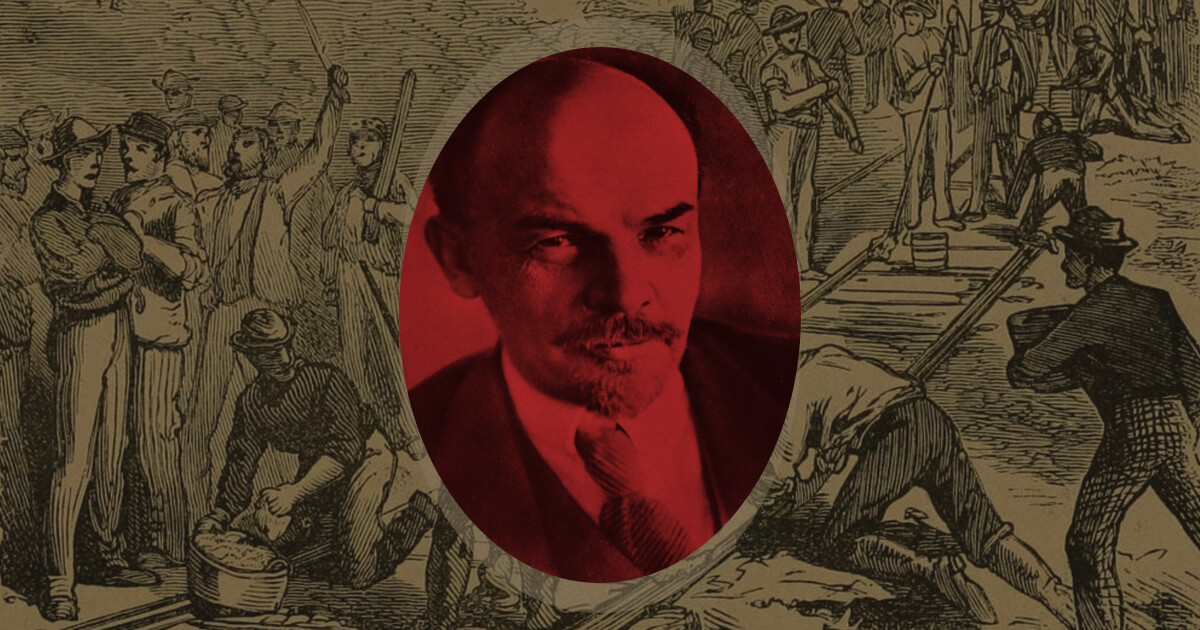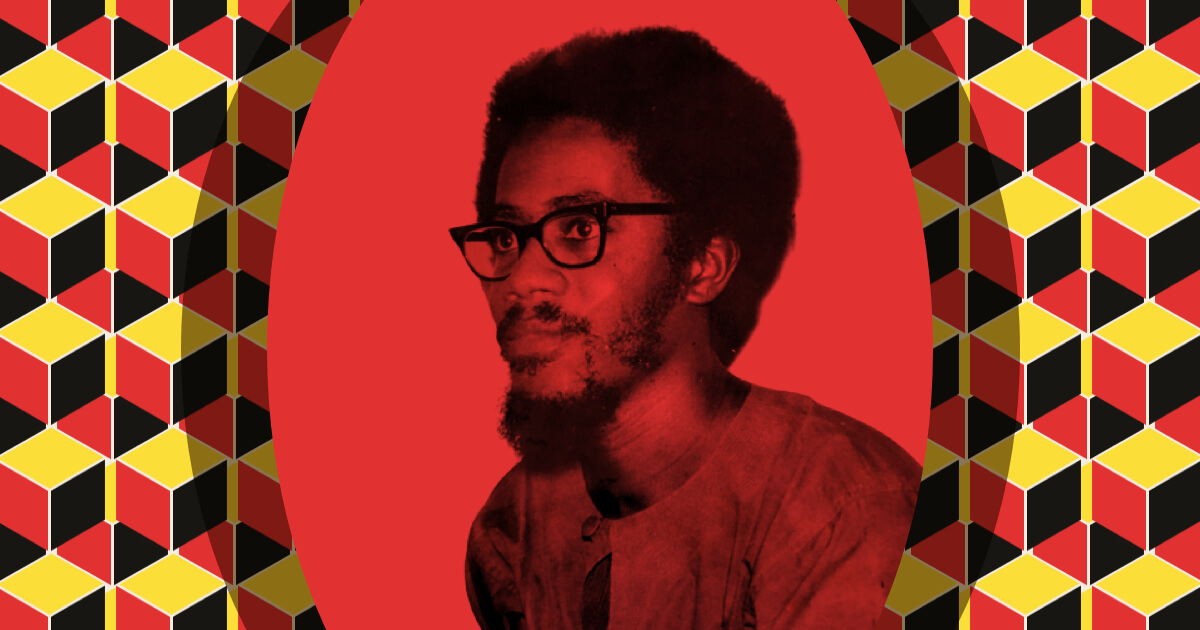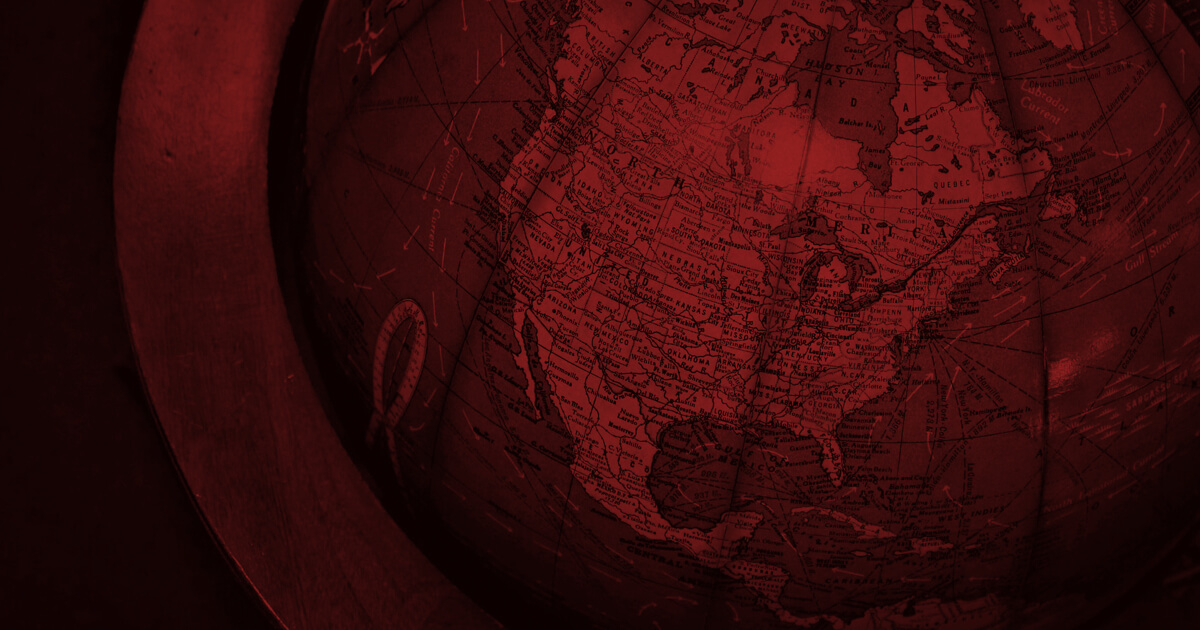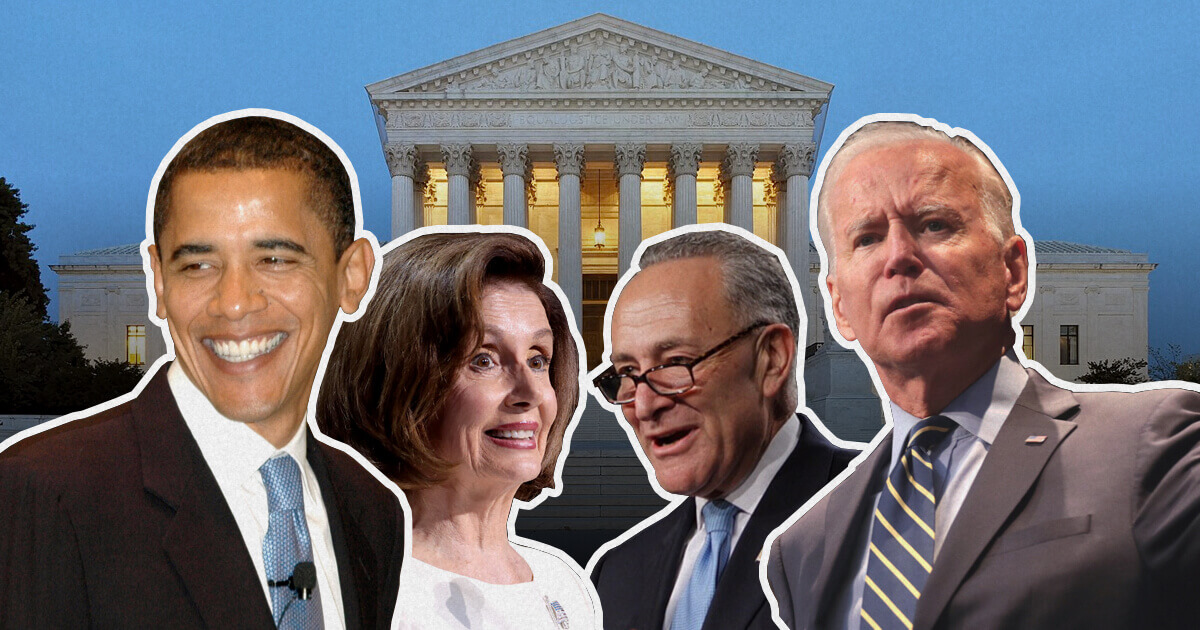There is a glaring paradox at the core of the American project. On the one hand, it proclaims its national self-determination with the values of life, liberty, pursuit of happiness, right to revolution, and to a government of, by, and for the people. On the other hand, the rights to life, liberty, and pursuit of happiness have never been guaranteed for anyone but the white, male, capitalist class (which is slowly being racially and sexually diversified). The leading thinkers of the American project, from Jefferson to Martin Luther King Jr., have warned about the corrupting influence the interests of capital can play in preventing the concretization of these rights.
Thomas Jefferson, for instance, understood that the ‘enormous inequality’ in property relations was the cause of the ‘misery [of] the bulk of mankind,’ and that, as Herbert Aptheker notes, this concentration of capital was ‘the central threat to democratic rights.’ 1 In noticing how the interest of capital can turn a government of, by, and for the people into a government of, by, and for big business, Jefferson would go on to draw a distinction between the democratic man and the aristocratic man. The former, he argued, trusts the people’s will, the latter distrusts it and turns towards big business elitism. Jefferson believed the aristocratic man, if he came to dominate the American government, would undermine the ideals of the 1776 anti-colonial revolution. The first generation of home-grown socialists, flowering in the 1820s and 1830s, saw Jefferson’s prediction actualize itself in the embryonic industrialization period of the US. In the face of growing inequalities and disparities, thinkers like Langdon Byllesby, Cornelius Blatchley, William Maclure, Thomas Skidmore and others, developed the ideals of the declaration of independence into socialism, what they considered to be its practical and logical conclusion.
Throughout the ages, generations of American socialists have appealed to the declaration of independence to argue for socialism in a way that connects with the American people’s common sense. Leading historians and theoreticians of the American socialist tradition, thinkers like Staughton Lynd, Herbert Aptheker, W.E.B. Dubois, Eugene Debs, William Z. Foster and others, have elaborated on the subject, noting that regardless of the limitations encountered in the founding of the American experiment, it was a historically progressive event, whose spirit should be carried forth today by socialists and communists.
As the US is increasing tensions against China, leading to what many consider a ‘new cold war,’ it is important to look back at the values the American people accept, to the thinkers the American people consider their own, and to consider how different China’s practices – which our ruling class and its media constantly estrange to the American public – are from the ideals which founded our country. What we will find, I believe, is the values prioritized by the leading thinkers of the American experiment, from Jefferson to Dewey to Martin Luther King Jr., are best embodied today in Chinese socialism. This truth, in my view, should be brought forth to the American people. No longer should their consent continue to be manufactured to fight against peoples whose practices align with our ideals more than those we encounter in our own country.
John Dewey (1859-1952), known as ‘America’s philosopher of democracy,’ wrote that we must stop thinking about democracy as something ‘institutional and external;’ instead, we should treat democracy as a ‘way of life,’ one governed by the ‘belief in the common man.’ 2 For Dewey, genuine democracy is a consistent practice; it has less to do with showing up to a poll every two to four years and more to do with the ability of common people – what in Spanish we call el pueblo – to steadily exert their collective power over the affairs of everyday life. Dewey understood that this genuine form of democracy was largely inexistent in the US, where the democratic spirit is reduced to voting every four years in political elections which, as he argued, function more as a ‘shadow cast on society by big business.’ 3
In line with the long tradition of home-grown American socialists, Dewey would conclude that the ideals of the founders – especially the radical flank commonly known as the ‘dissenters’ – would be realized ‘only as control of the means of production and distribution is taken out of the hands of individuals who exercise powers created socially for narrow individual interests.’ 4 In the context of the US, Dewey held that this required ‘a radical change in economic institutions and the political arrangements based on them.’ ‘These changes,’ said Dewey, ‘are necessary in order that social control of forces and agencies socially created may accrue to the liberation of all individuals associated together in the great undertaking of building a life that expresses and promotes human liberty.’ 5 For Dewey, in short, only socialism could make actual the radical, and for its time, deeply democratic, spirit of the declaration of independence.
A similar sentiment can be found in Martin Luther King Jr., the only American to have his own holiday (every third Monday of January). In one of his last sermons, whilst reflecting on the rights upheld in the declaration of independence, King would note that ‘if a man doesn’t have a job or an income, he has neither life, nor liberty, nor the possibility for the pursuit of happiness. He merely exists.’ America, for King, had desperately failed to fulfill its promise, not just for the black souls it kept enchained for more than two centuries, but for all poor and working people who continued to ‘perish on a lonely island of poverty in the midst of a vast ocean of material prosperity.’ 6 This division was representative of what King called the ‘two Americas,’ the America of the poor working majority and the America of the few owners of big capital. 7
Like Dives in the parable of the rich man and Lazarus, King held that ‘if America does not use her vast resources of wealth to end poverty and make it possible for all of God’s children to have the basic necessities of life, she, too, will go to hell.’ 8 The stranglehold monopoly capital has over the American state turned the American dream – that is, the individual’s quest for life, liberty, and pursuit of happiness in harmony with the human community – into the American nightmare. No number of victories in the sphere of civil rights could change, in King’s view, the fundamentally polarizing character of the system. As King would argue years after the victories of the civil rights movement: ‘I have found out that all that I have been doing in trying to correct this system in America has been in vain… I am trying to get at the roots of it to see just what ought to be done… The whole thing will have to be done away with.’ 9 For all its claims of being a beacon of democracy, for King, as Cornel West argues, ‘America’s two main political parties, each beholden to big money, offer merely alternative visions of oligarchic rule.’ 10 Like Dewey and many others within the tradition of American socialism, King considered the values of the declaration of independence to only be universally applicable if America is able to move beyond the capitalist mode of life.
The American ruling class ignores and/or sanitizes this tradition of home-grown socialism which permeates even through the most universally admired of American figures. It wishes to hide the working class’s and oppressed people’s history of struggle in our country, for only in doing so can it perpetuate the McCarthyite lie that socialism and the values the American people accept are wholly incompatible. The truth is that, on the contrary, it is on the basis of the values the American people already accept that American socialism has developed. By showing the American people the positive role socialism has played in their national past – and how these struggles have seen themselves as continuations of the revolutionary tradition of 1776 – the similarities in Chinese socialist construction and this unique tradition of American socialism become apparent.
Martin Luther King Jr., for instance, found it condemnable to sustain poverty amidst material abundance; the rights to life, liberty, and pursuit of happiness require the abolition of poverty for their genuine fulfillment. In just 40 years, Chinese socialism has been able to lift more than 800 million people out of poverty, abolishing that horrendous condition the capitalist mode of life makes necessary for the vast majority of people. While building a poverty-free world with common prosperity, China has been able to realize a condition for its people which looks a lot more like what the leading American minds (like Dr. King) stood for than what can be found in America itself.
As we approach the 55th anniversary of King’s assassination (which the FBI helped orchestrate), we should ask: has America – which celebrates King once a year – heeded to King’s concern for poverty and the condition of the working class? The answer is a resolute No! In no state of the US, for instance, is the federal minimum wage ($7.25) enough to survive; even if it is raised to $15 – as the democratic socialists and other progressives have called for – the minimum wage would still not be enough for a working class family to survive anywhere in the country. With stagnant wages and inflation at a 40 year high, almost 60% of Americans are currently living paycheck to paycheck. Many of these people are on the brinks of joining the 600,000 homeless people wandering around in a country with more than 17 million empty homes. It is not surprising, in a country where there are 33 times more empty homes than homeless people, that 34 million people, including one in eight children, experience hunger while 30-40% of the U.S.’s food supply (40 million tons of food) is wasted every year. For all the tokenization of King we find in America’s political circus, we can say that after 55 years since his state-sanctioned death, America has still not listened, and much less realized, the demands of Dr. King. However, China has!
Likewise, Dewey, perhaps the most prominent philosopher America has produced, felt that to carry forth today the democratic creed of the declaration of independence, we must deepen our understanding and practice of democracy. A mode of life where the same small group of monopolists owns most of the property, controls most of the media, and decides who gets elected and what they do when elected, can hardly be called democratic. For Dewey, we are not living up to the democratic creed if ‘democracy’ only matters every two to four years when elections come about and working people are bombarded with reasons why they should vote for one puppet of the ruling class over another. Dewey would wholeheartedly agree with Xi Jinping in asserting that ‘democracy is not an ornament to be used for decoration; it is to be used to solve the problems that the people want to solve.’ As Xi has noted,
If the people are awakened only at the time of voting and go into dormancy afterward; if the people only listen to smashing slogans during election campaigns but have no say afterward; if the people are only favored during canvassing but are left out after the election, such a democracy is not a true democracy.
One could see words like these coming out of the mouths of a John Dewey or a Martin Luther King Jr. These ideas governing China’s socialist whole-process people’s democracy should seem anything but foreign to Americans – it is what our leading democratic theorists hoped the US system would develop into. If Americans are faithful to the democratic creed of the declaration of independence, and to the leading theorists of our country who’ve developed these into notions of socialist democracy with American characteristics, then we should be praising China for how incredibly comprehensive their socialist democracy (which is still humbly considered a work-in-progress) is. Far from thinking about democracy in the reductive, election-only sense, China’s system of socialist democracy is embedded in ‘seven integrated structures or institutional forms (体制tizhi): electoral democracy; consultative democracy; grassroots democracy; minority nationalities policy; rule of law; human rights; and leadership of the Communist Party.’ A comprehensive study of this whole-process people’s democracy would lead any unbiased researcher to the conclusion Roland Boer has (along with a plethora of Chinese scholars) arrived at: namely, that ‘China’s socialist democratic system is already quite mature and superior to any other democratic system.’
Not only does the US lack this seven-tiered democratic system, but even in the one realm it does have, namely, electoral democracy, the results it produces could hardly be called ‘democratic.’ For more than a decade studies from bourgeois institutions have themselves confirmed what Marxists have known since the middle of the 19th century, namely, that the essence of capitalist ‘democracy’ is ‘democracy for an insignificant minority – democracy for the rich.’ 11 The U.S., which spreads its blood soaked hands around the world plundering in the name of democracy, has been outed as a place where the dēmos (common people) do anything but rule (kratos). As a Princeton study headed by Martin Gilens and Benjamin I. Page shows,
In the United States, our findings indicate, the majority does not rule—at least not in the causal sense of actually determining policy outcomes. When a majority of citizens disagree with economic elites or with organized interests, they generally lose. Moreover, because of the strong status quo bias built into the U.S. political system, even when fairly large majorities of Americans favor policy change, they generally do not get it. 12
In societies divided by class antagonisms we can never talk about ‘pure democracy,’ or abstract democracy in general; we must always ask – as Lenin did – ‘democracy for which class’? 13 The ‘democracy’ and ‘democratic freedoms’ of capitalist to exploit and oppress will always be detrimental to working and oppressed peoples. Only an all-people’s democracy (a working and popular classes democratic-dictatorship) can be genuinely democratic, for it is the only time ‘power’ (kratos) is actually in the hands of ‘common people’ (demos).
To claim – as American capitalists, their puppet politicians, and their lapdog media does – that the US is a ‘beacon of democracy,’ and China an ‘authoritarian one-party system,’ is to hold on to a delusional topsy turvy view of reality. Only by holding explicitly the idea of democracy as democracy for the rich – an oxymoronic truth which they must continue to conceal from the American public – would any part of their assessment contain truth. If democracy is considered from the standpoint of the capitalist’s ability to arbitrarily exert their will on society at the expense of working people and the planet, then, of course, the US is a beacon of this form of so-called ‘democracy,’ and China an ‘authoritarian’ regime. If instead, democracy is considered from the standpoint of common people’s ability to exert their power successfully over everyday affairs, that is, if democracy is understood in the people-centered form it etymologically stands for, and in the way leading American thinkers like Jefferson, Dewey, and Dr. King understood it, then it would be indubitable that China is far more democratic than the US (and any other liberal-bourgeois ‘democracy’).As the US increases its anti-China rhetoric and actions – a symptom of its empire’s moribund stage – it becomes an imperative for all sane people to counter the propaganda setting the stage for, at best, a new cold war, and at worst, a third world-war. As Julian Assange – whose treatment reminds us everyday of how much the West cherishes its so called ‘individual rights’ to speech and press – once eloquently stated: ‘if wars can be started by lies, peace can be started by truth.’
It is the duty of American communists, socialists, and progressives, to show the American people the truth; to show them that China is not the enemy of the American people, that the real enemy of the American people are those who would like us to see China as an enemy. It is not China who has our country surrounded by military bases. It is not China who is funding and inciting separatist movements in our autonomous regions. It is not China who is slandering us with baseless accusations of the most heinous crimes of genocide humanity can imagine. It is not China who is creating international military alliances a la global NATO to militarily threaten us. It is the US empire who is doing this to China. The only interests which China threatens are those of our finance capitalists, who have spent the last century impoverishing both our people at home and our brothers and sisters in the global south. China is a friend of the American working men and women; just like it is a friend of the African peoples, and the peoples in the Middle East and in Latin America, whose win-win, mutually beneficial relations in international trade with China have afforded them the ability to turn away from predatory neoliberal debt-trapping loans which have been systematically forced on them for half a century by the capitalist West.
In sum – to be faithful to the democratic creed of the declaration of independence and of the greatest minds our country has produced, we must realize today that China is not our enemy; instead, it is the place wherein the ideals which guide this democratic creed are best embodied. Instead of buying into the easily confuted lies of Western pundits, who hope we are foolish enough to accept them and dance to the drums of a war to sustain Western capitalist-imperialist hegemony, we must learn from China and work together to build a peaceful, cooperative, and ecological shared future for mankind.
Originally published on MidwesternMarx. Photo credits: MLK from the GPA Photo Archive on Flickr; Xi Jinping via Xinhua/Li Xueren.
Footnotes
- Herbert Aptheker, The American Revolution: 1763-1783 (New York: International Publishers, 1960), 105.
- John Dewey, The Collected Works of John Dewey, 1882-1953, ed. by Jo Ann Boydston (Carbondale and Edwardsville: Southern Illinois University Press, 1967-1990), LW 14:228.
- Dewey, LW 6:163.
- Dewey, LW 11:28.
- Dewey, LW 11:28.
- Martin Luther King Jr, The Radical King, ed. and introduced by Cornel West (Boston: Beacon Press, 2015), 246- 247. 248.
- King Jr, The Radical King, 236.
- King Jr, The Radical King, 248.
- King Jr, The Radical King, xi.
- King Jr, The Radical King, xiii.
- V. I. Lenin, Collected Works Vol. 26 (Moscow: Progress Publishers, 1977) 465.
- Gilens, M., & Page, B. (2014). Testing Theories of American Politics: Elites, Interest Groups, and Average Citizens. Perspectives on Politics, 12(3), 564-581. doi:10.1017/S1537592714001595
- V. I. Lenin, Collected Works Vol. 28 (Moscow: Progress Publishers,1974), 249.
